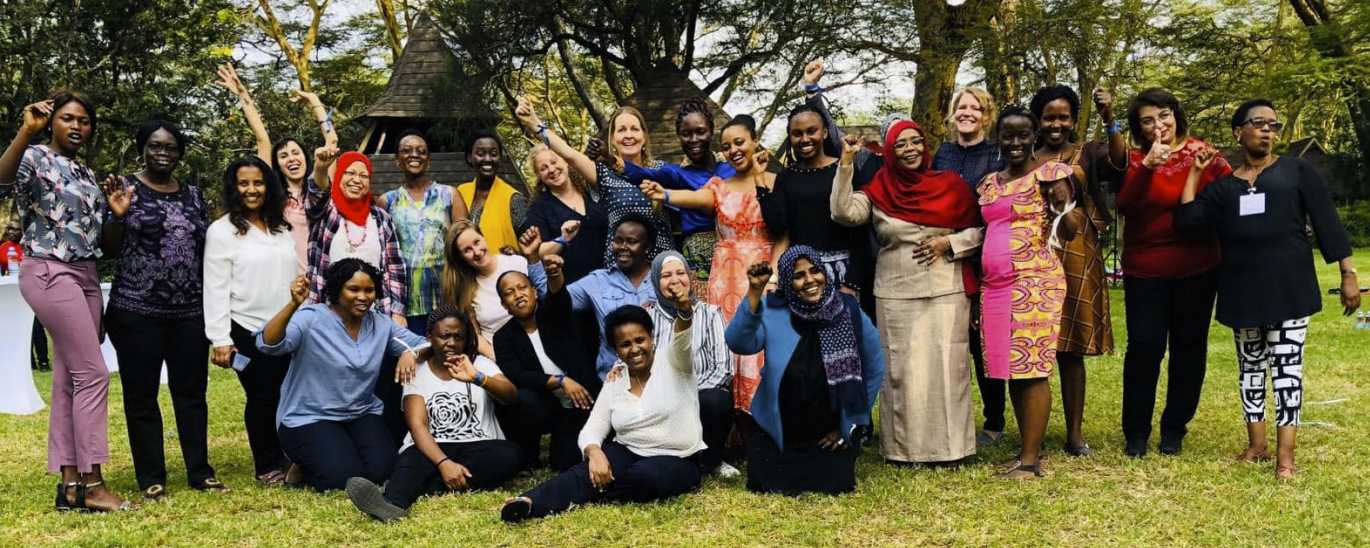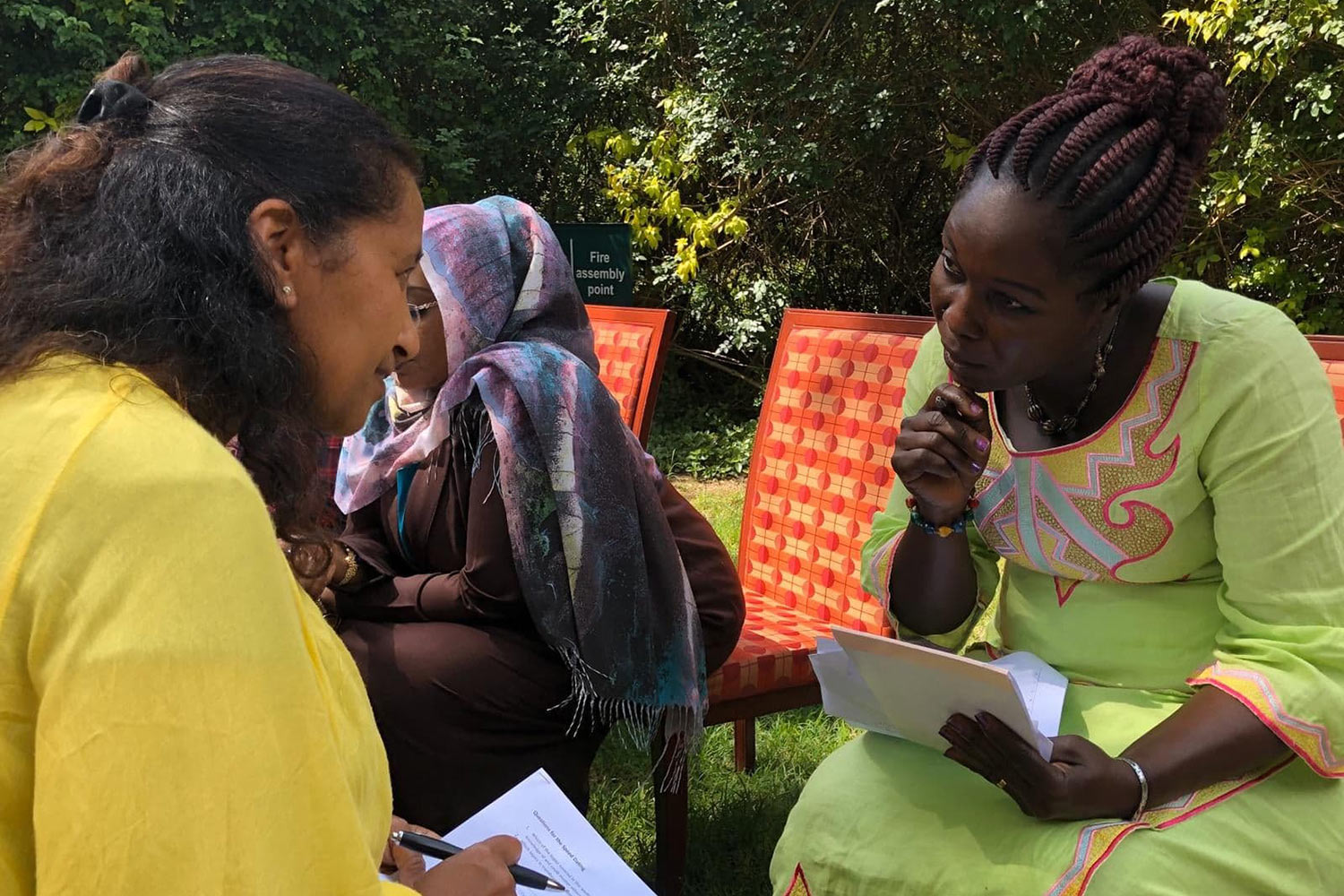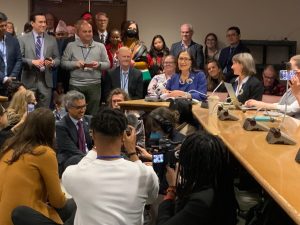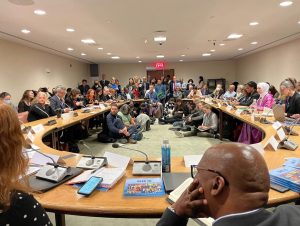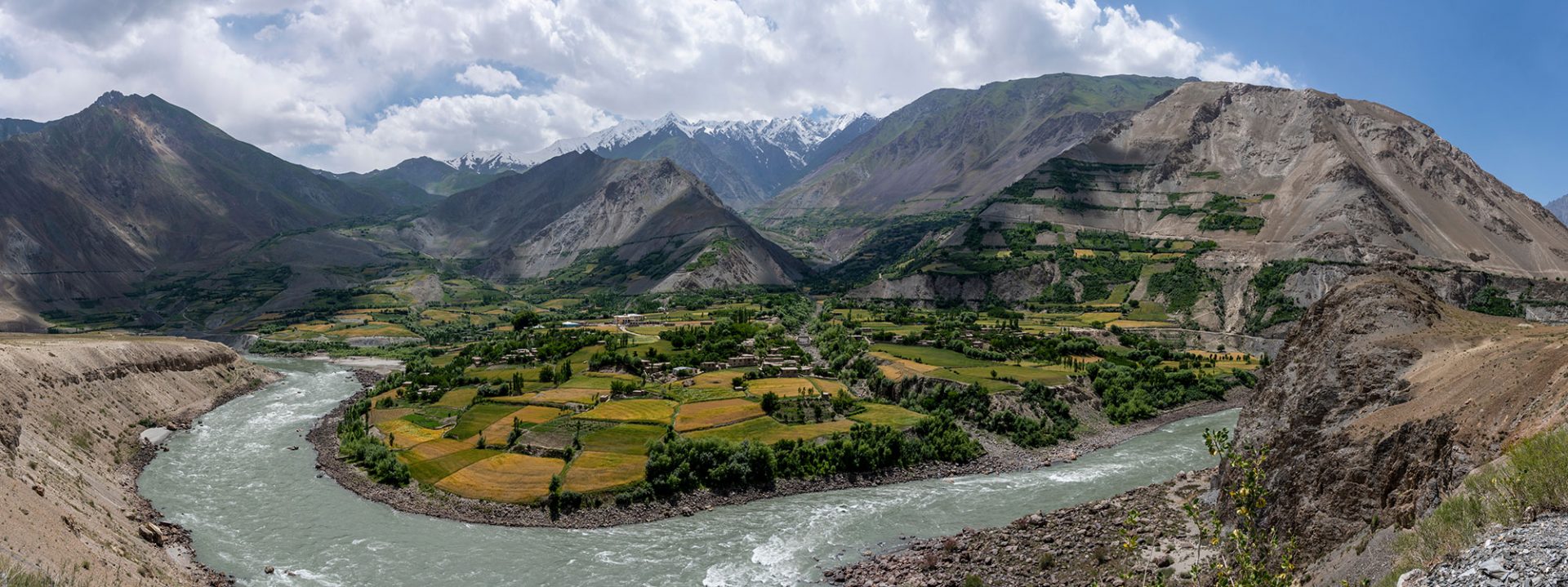heading
The Women in Water Diplomacy Network in the Nile promotes women’s participation in high-level water diplomacy processes. Through the network, members can share experiences and lessons learned.
Since its launch in 2017, the Women in Water Diplomacy Network in the Nile has contributed to building trust and enabling environment for cooperation. The Network is a project of the Shared Waters Partnership, SIWI’s flagship programme which supports transboundary water cooperation in conflict-sensitive areas. The Network is also supported through a partnership with the Environmental Law Institute.
The Women in Water Diplomacy Network engages senior and mid-career women professionals from Ministries of Water and Ministries of Foreign Affairs, as well as other relevant line ministries from across the Nile Basin. The aim is to enhance the collective capacity of women throughout the basin and to support the engagement of women water leaders in decision making and peacebuilding processes.
The Network hosts annual workshops and regular online activities. In 2020, a Network Joint Statement was issued in support of inclusive water governance. The initiative has been met with significant interest for its innovative approach. Women’s participation at all scales of peacebuilding and conflict resolution processes is essential for the development and sustainability of agreements – including transboundary water-related agreements and water diplomacy processes.
The Women in Water Diplomacy Network engages senior and mid-career women professionals from Ministries of Water and Ministries of Foreign Affairs, as well as other relevant line ministries from across the Nile Basin. The aim is to enhance the collective capacity of women throughout the basin and to support the engagement of women water leaders in decision-making and peace building processes.
The Network hosts annual workshops and in 2020 a Network Joint Statement issued in support of inclusive water governance. The initiative has been met with significant interest for its innovative approach. Women’s participation at all scales of peacebuilding and conflict resolution processes is essential for the development and sustainability of agreements – including transboundary water-related agreements and water diplomacy processes.
The background
The Women and Water Diplomacy Network in the Nile was initiated by SIWI and partners as a platform for women water professionals active in transboundary water management.
Cooperation over the shared water resources of the Nile Basin is essential to water security and development in the region. To be effective, this requires good and inclusive decision-making. Involving a diverse cross-section of stakeholders leads to more informed decisions since a broader set of environmental and social impacts will be considered. With more knowledge and skills to draw from, solutions are also more likely to be sustainable and equitable.
Since its establishment, the Network has hosted annual workshops in 2017 (in Uganda), 2019 (in Ethiopia) and 2020 (in Kenya), as well as regular online learning activities. In 2019, the Network released a key summary publication ‘Tapping our Potential,’ and in 2020 a Network Joint Statement was issued in support of inclusive water governance. To read more about ongoing activities in the Women in Water Diplomacy Network in the Nile sign up for the Network’s newsletter.
The challenge
The transformative role of women in conflict prevention and peacebuilding has been repeatedly demonstrated. Research has shown that gender-inclusive peace processes are 35 per cent more likely to last at least 15 years, that peace agreements signed by women are positively associated with more durable peace, and that higher levels of gender equity are associated with a lower instance of conflict. To learn more, see SIWI’s policy brief Tapping our Potential.
A growing body of research shows that gender equality is an essential aspect of transboundary water cooperation. Women’s participation in peace processes is positively associated with more durable agreements. Higher levels of gender equality are associated with a lower instance of conflict.
Women are often under-represented in political decision-making at the transboundary level, undermining progress towards cooperative and sustainable management of shared waters.
Our impact
The Women in Water Diplomacy Network in the Nile has been met with significant interest. There is a growing international movement to facilitate women’s involvement in water decisions as well as conflict mediation, negotiations, and peacebuilding. The Network draws inspiration from Sweden’s Feminist Foreign Policy and the Nordic Women Mediators Network. The Women in Water Diplomacy Network in the Nile hosts experience exchange sessions with other networks focused on mediation and water diplomacy.
Meet the Network members
The women in the network are senior and mid-career professionals. They come together to enhance the collective capacity and support the engagement of women in decision making and peacebuilding processes.
Read their bios